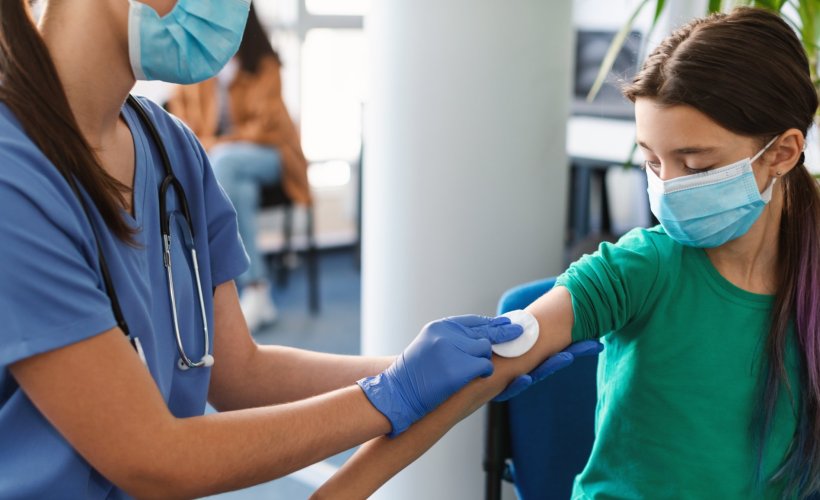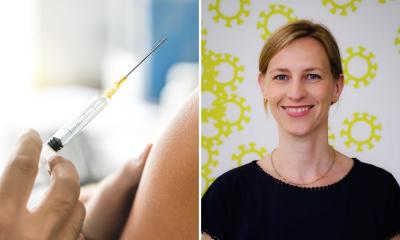
© Prostock-studio – stock.adobe.com
News • Cervical cancer prevention
HPV vaccine protects for a long time, study shows
The human papillomavirus (HPV) vaccine provides strong and sustained protection for more than a decade against cervical disease that can develop into cancer, a new study confirms.
The vaccine continues to be effective more than 12 years after it was given, in women who came forward for cervical screening, experts say. The new insights were published in the International Journal of Cancer.
Previous studies have shown that the jab is highly effective in preventing the development of cervical pre-cancer and cancer. The vaccine provides protection when administered to girls aged 18 years or under – an older age than previously reported from Scotland – with the biggest reduction in cervical pre-cancer seen in girls vaccinated at age 12-13.
Recommended article

News • Oncological gynecology
Cervical cancer: HPV vaccine to get rid of precancerous lesions
Infection with the human papillomavirus (HPV) is the most common cause for cervical cancers. Now, researchers have developed a promising therapeutic vaccine against precancerous lesions.
HPV is a common virus, usually spread through sexual contact, and responsible for almost all cases of cervical cancer – the fourth-most common cause of cancer in women worldwide. Scotland’s routine cervical cancer screening programme and the HPV immunisation programme, introduced in 2008, work together to both reduce the prevalence of HPV and the development of cervical pre-cancer and cancer among women.
Scientists at the Universities of Edinburgh and Strathclyde and Public Health Scotland used population health data from across Scotland to track the long-term effectiveness of the vaccine. They found women from Scotland’s most deprived areas, who are at greater risk of cervical pre-cancer and are less likely to attend screening appointments, benefited the most from vaccination, helping to reduce health inequalities.
Vaccination against HPV is effective in preventing cervical cancer and, along with regular screening for early detection and treatment, it is possible to make cervical cancer a rare disease
Kirsty Roy
Strong community protection may also contribute to reductions in cervical disease among women in more deprived areas where vaccine uptake is lower, experts say.
The HPV vaccine is offered as a routine immunisation through schools to all S1 pupils in Scotland. It also helps to protect both boys and girls from other HPV-related cancers that can develop later in life, such as some head and neck cancers, other anogenital cancers as well as genital warts.
"Vaccination against HPV is effective in preventing cervical cancer and, along with regular screening for early detection and treatment, it is possible to make cervical cancer a rare disease," says Dr Kirsty Roy, Consultant in Public Health at Public Health Scotland. "I would encourage all S1 pupils in Scotland to take up the offer of the free HPV vaccine when it’s offered to protect themselves against future risks. PHS is working closely with Scottish Government and local health boards to ensure the continued uptake of the key cervical cancer prevention measures – the HPV vaccine and routine cervical screening."
"This study shows conclusively that the HPV vaccine prevents the changes that can develop into cancer," adds Dr Tim Palmer from the Centre for Reproductive Health at the University of Edinburgh. "It also emphasises the need for continued high uptake of the vaccine in schools as vaccination at older ages is much less effective. Screening is still important to prevent disease caused by HPV types not covered by the vaccine."
Source: University of Edinburgh
05.11.2025










